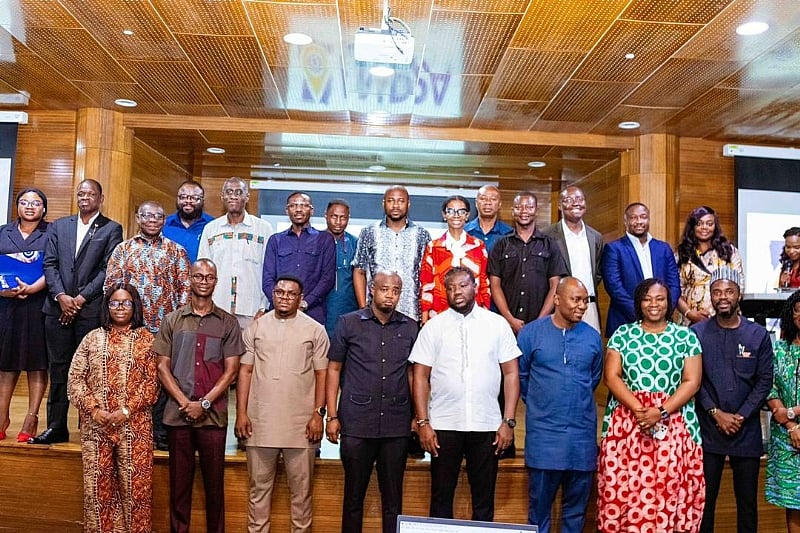The National Petroleum Authority (NPA) has inaugurated a Steering Committee to spearhead the implementation of the 24-Hour Economy initiative within Ghana’s downstream petroleum industry.
The launch, which took place on Friday, July 25, 2025, at the Authority’s head office, forms part of the government’s broader efforts to drive economic transformation through round-the-clock productivity.
The committee has been tasked with developing regulatory frameworks, operational strategies, and implementing timelines to operationalize the 24-hour economy across the downstream petroleum value chain.
In his welcome address, Chief Executive of the NPA, Mr. Godwin Kudzo Tameklo (Esq.), underscored the significance of the initiative, noting that the 24-hour economy is a key policy direction of the government and one the President is determined to see realized.
“The issue of the 24-hour economy is a major policy priority for the President. To underscore its importance, the President has appointed a seasoned public servant, Mr. Goosie Tanoh, as the Presidential Advisor on the 24-hour economy, to lead the national conversation on accelerating economic activities, particularly in sectors like ours,” he stated.
Mr. Tameklo emphasized that the downstream petroleum sector is uniquely positioned to lead this transformation. “We are privileged to have key industry players present here today — from COMAC, CBOD, BOST and others. This is the right platform to move this policy from political promise to implementable action,” he said.
Speaking on behalf of the Presidential Advisor on the 24-hour economy, Ing. Roland Atanganunge Azuvugu provided an overview of the initiative, which comprises eight interlinked pillars: Make 24, Grow 24, Build 24, Connect 24, Fund 24, Aspire 24, Show 24, and Go 24. These, he said, will provide the structural foundation for the 24-hour economy, with customized modules and incentives to support various sectors, including petroleum downstream.
“The downstream petroleum sector, which includes Bulk Distributing Companies, Oil Marketing Companies, LPG marketers, and depot operators, faces significant challenges from capital constraints to infrastructure gaps and uneven regional service delivery,” Ing. Azuvugu noted. “This policy will introduce innovative financial models and market incentives to address these barriers.”
Industry leaders also pledged their support to the initiative.
Chief Executive of the Chamber of Oil Marketing Companies (COMAC), Dr. Riverson Oppong, lauded the formation of the steering committee, stating, “From the OMC perspective, we understand the task ahead. Certain foundational policies need to be in place, and we are committed to working with all stakeholders under the leadership of the NPA to ensure that.”
Chief Executive of the Chamber of Bulk Oil Distributors (CBOD), Dr. Patrick Kwaku Ofori, also called for the strengthening of physical and digital infrastructure. “We need enhanced security presence in key storage hubs like the eastern corridor, where nearly 75% of national storage capacity is located. Additionally, investing in technology to track and monitor fuel discharge will help prevent losses and improve transparency,” he said.
The Steering Committee will be chaired by NPA Chief Executive Mr. Godwin Kudzo Tameklo, with support from his deputies, Dr. Sheila Addo and Dr. Dramani Bukari. The NPA remains committed to working collaboratively with industry stakeholders to ensure the successful rollout of the 24-hour economy within the downstream sector, driving national development and energy accessibility around the clock.
Source: NPA


